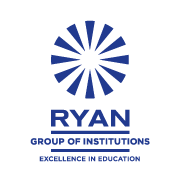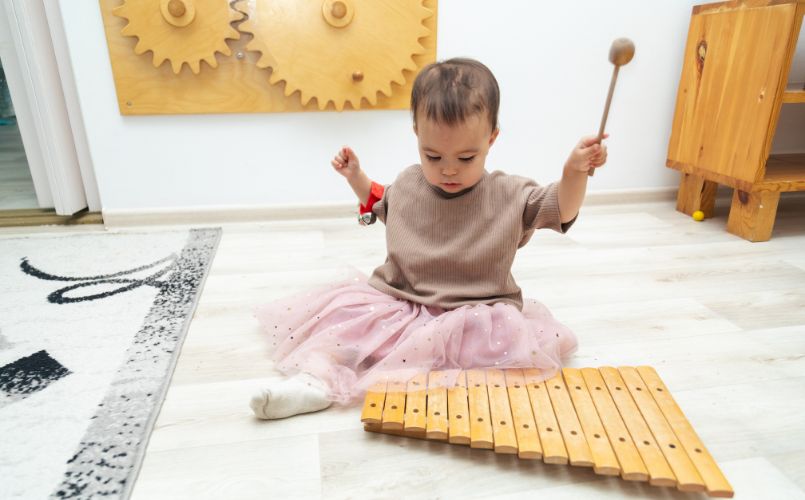Picture a day in a toddler’s life. The morning might begin with a tune playing softly in the background setting a tone for the day ahead. As they go about their activities they might clap along to a beat or bounce rhythmically their faces beaming with delight. It’s not play; it’s a process where neural connections are being formed emotions are being understood through musical language and social bonds are being forged.
What does science tell us about this journey? Extensive research consistently demonstrates that early exposure, to music can enhance language skills improve memory retention and deepen comprehension.
A recent study published in the “Journal of Developmental Psychology” sheds light on the effects of music engagement, for toddlers. It suggests that toddlers who regularly interact with music tend to have language skills and memory recall compared to their peers who do not have exposure to music. This goes beyond learning songs; it involves laying a foundation for effective communication and cognitive abilities.
Furthermore the influence of music extends beyond development. It also has an aspect bringing toddlers together and teaching them about rhythm, sharing and collaboration. The spontaneous dance sessions inspired by songs and the shared laughter over rhymes all contribute to a toddlers understanding of the world around them and their place within it.
For parents, guardians and educators it is essential to recognize the impact that music can have on toddler development. It’s not about creating child prodigies but rather enriching their journey with the joy and benefits that music brings. This exploration encourages us to look beyond nursery rhymes and simple tunes enabling us to understand and harness the power of music in shaping minds and nurturing hearts.
Unveiling the Science; Music’s Influence on Neural Development
As parents witness their toddlers swaying and twirling to music they may not realize that they are witnessing more, than a display of innocence and happiness.
Indeed parents are witnessing a process where music plays a role, in shaping their child’s developing brain.
When it comes to language development music emerges as an influential tool. A research study conducted by the Brain and Creativity Institute at the University of Southern California sheds light on this phenomenon. The study revealed that children exposed to music related activities from an age demonstrated advanced reading skills and a better understanding of complex linguistic concepts compared to those who had not been exposed to such activities. These findings emphasize the interconnectedness between rhythm and linguistic cadence suggesting that exposure to music can sharpen a toddler’s ability to process and comprehend language.
The impact of music goes beyond language; it also extends to memory development, which’s crucial for toddlers. Interestingly the melodies and harmonies that captivate toddler’s attention do more than just please their ears. They stimulate the hippocampus, the region for memory formation and recall, in our brains. This was highlighted in a study published in the “Journal of Neuroscience” which revealed that children engaged in activities displayed memory retention and retrieval capabilities.
The repetitive nature of songs, with their recurring melodies and lyrics serves as an exercise that helps strengthen our memory.
Furthermore the impact of music on brain development is not temporary. The changes that occur in the brain due to experiences during childhood have long lasting effects. Neuroscientists suggest that these experiences contribute to building a neural network laying a solid foundation for future learning and intellectual pursuits.
This discovery about the role of music in brain development is more than a scientific finding; it’s a call to action for parents and educators alike. By introducing music into a child’s life from a young age, we are not just providing entertainment but actively participating in shaping their cognitive abilities and preparing them for a lifetime of exploration and education.
Music as a Tool for Building Social Skills in Young Children
When young children come together in a circle clapping their hands and singing along to tunes they are doing more than simply enjoying some musical fun. These interactions play a role in developing social skills.
At its core music is an experience meant to be shared among people. It goes beyond play. It welcomes young children into a shared space of rhythm and harmony. Dr. Alice Sterling, a known child psychologist highlights the significance of music, in fostering bonds among toddlers. According to her observations music serves as a means for children to interact, communicate and develop an understanding of one another. This underscores the role that music plays in teaching toddlers about empathy, cooperation and the joy of shared experiences.
Participating in activities with peers allows toddlers to experience the dynamics of interactions. Whether it involves taking turns playing instruments, coordinating movements during a dance routine or simply listening attentively while others sing. These activities help nurture skills such as listening, patience and respect for others. This is particularly evident in group settings like music classes or family gatherings where music becomes a tool for learning and fostering mutual understanding.
Furthermore music serves as a medium for toddlers to express their emotions effectively by offering them outlets to explore and communicate their feelings. The melodies and lyrics provide a framework for children to express joy, sadness, excitement or frustration—enabling them to gain insights into their own emotions as well as those experienced by others.
The impact of music, on a toddler’s development is significant and wide ranging.
It provides children with the skills to navigate their environment promoting a sense of belonging and comprehension. As we delve deeper into exploring the impact of music, on the development of toddlers it becomes increasingly evident that music is more than a source of entertainment; it plays a crucial role in shaping the social and emotional fabric of our children’s lives.
Incorporating Music into Daily Life; Practical Tips for Parents
Incorporating music into a toddler’s routine may appear overwhelming. It doesn’t have to be. Here are sone tips that’re easy for parents and caregivers to implement aiming to enrich their toddlers life with music. These suggestions aim to integrate experiences into everyday activities making the process enjoyable and stress free for both the child and adult.
- Begin with Simple Songs; Start by introducing melodies that toddlers can easily follow along with. Songs featuring phrases and simple tunes not provide enjoyment but also contribute to language development and memory skills.
- Cultivate a Musical Environment; Play a range of music at home. Whether its classical or folk exposing your child to genres expands their experiences and fosters an appreciation, for various sounds and rhythms.
- Encourage your one to engage in play by offering them simple instruments such, as drums, shakers or xylophones. These tools allow them to explore and create their music nurturing their creativity and sense of rhythm.
- Singing together is a way to connect with your child. Whether its a soothing lullaby before bedtime a song during bath time or a fun sing along during car rides this shared experience strengthens the bond between you and enhances emotional well being.
- Consider joining music groups or attending music classes with your toddler. Participating in these activities can have benefits as they provide opportunities for interaction and help toddlers associate music with enjoyment and learning in a group setting.
Incorporating music into your toddlers life should be an enriching journey. These activities go beyond developing skills; they create lasting memories and foster a lifelong love for music. By making music a regular part of their world parents and caregivers can play a role in their development and happiness.
The Long Term Advantages of Exposure to Music
The melodies and rhythms that fill the world of toddlers offer more than immediate enjoyment; they lay the foundation, for long lasting benefits that extend far beyond early childhood.
In the section we delve into the long term benefits of introducing children to music at an age highlighting why music is more, than just a fleeting pleasure but a lifelong treasure.
- Academic Advantages; Extensive research consistently demonstrates a link between early music education and academic success. A study conducted by the University of Toronto revealed that children who received training performed significantly better on IQ tests and standardized assessments compared to their peers without musical exposure. This suggests that skills acquired through music, such as focus, memory and creativity contribute to achievements.
- Emotional Intelligence Enhancement; Music plays a role in fostering intelligence. The ability to comprehend and express emotions through music lays a foundation for emotional awareness later in life.
- Social Unity and Confidence; Children who are exposed to music from an age often exhibit levels of self esteem and confidence. Engaging in activities in group settings nurtures a sense of belonging and connection with others.
- Appreciation for Culture and Openness; Exposure to diverse genres cultivates an appreciation for cultures and traditions. This sense of openness is a skill in today’s increasingly globalized world.
The impact of music, on a child’s development is profound and multi faceted.
As parents and teachers it’s essential to nurture and foster a love, for music during these years. Engaging with music not brings joy and entertainment. Also plays a vital role in a child’s overall growth. The impact of experiences can be long lasting shaping children into well rounded individuals who are emotionally intelligent and culturally aware.




